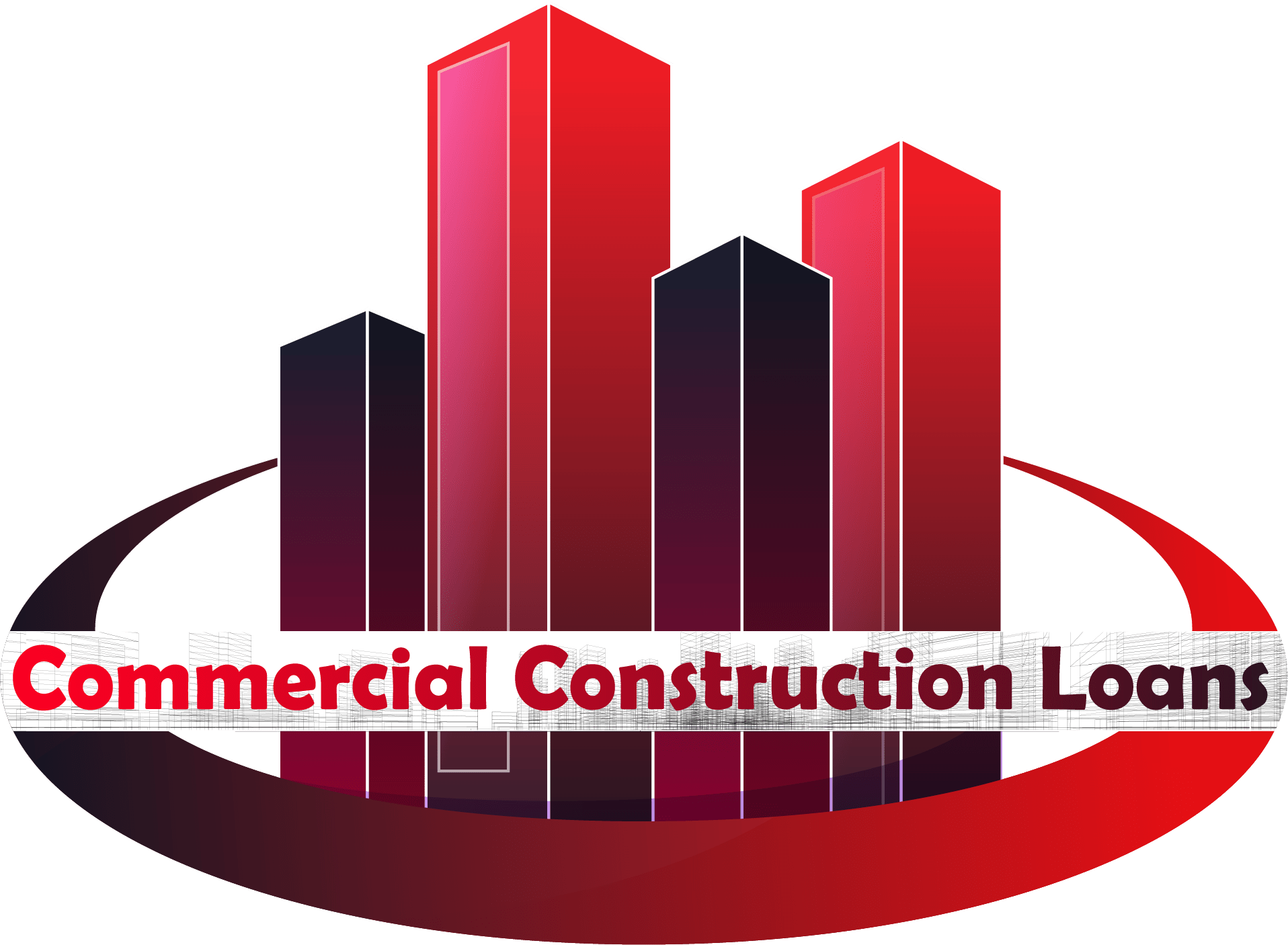Commercial construction loans are short-term financing solutions designed to fuel the development of income-generating commercial real estate. These loans provide the capital you need to cover all aspects of construction, from land acquisition and materials to contractor payments.
At commercialconstructionloans.net, we understand commercial real estate projects’ unique needs, explicitly focusing on income-generating properties. A strong return on investment is paramount, and our loan products are tailored to support the creation of valuable commercial assets.
What sets us apart? We function as a correspondent lender with an in-house underwriting team and superbroker capabilities. This powerful combination allows us to offer a simplified loan process, efficient underwriting, and access to a vast network of lenders, ensuring you get the most competitive rates and terms for your project.
What Lenders Look For in a Borrower

Financial Strength: Building Trust Through Stability
When considering a commercial construction loan, we look closely at your financial strength to ensure the project’s success. Here are some key factors we evaluate:
- Personal and Business Credit Scores (Minimum Scores Typically Apply): Both your personal and business credit scores play a crucial role. A strong credit history demonstrates your ability to manage debt responsibly. While requirements can vary, most lenders seek minimum personal scores in the high 600s to low 700s and a positive track record for your business.
- Debt-to-Income Ratio (DTI) and Its Significance: The DTI ratio compares your total monthly debt obligations to your gross monthly income. It indicates your capacity to handle additional debt. A healthy DTI ratio, typically below 40%, assures lenders that you have sufficient income to service the loan alongside your existing financial commitments.
- Business Financial Statements (Profit and Loss, Balance Sheet): A clear picture of your business’s financial health is essential. We will analyze your profit and loss statements to assess your profitability and cash flow. Your balance sheet provides a snapshot of your assets, liabilities, and overall net worth. Financially solid statements instill confidence in your ability to repay the loan.
Presenting a solid financial foundation can significantly improve your chances of securing a favorable commercial construction loan.
Project Feasibility: Building Confidence in Your Vision
Beyond financial strength, a thorough understanding of your project’s feasibility is critical. Here’s what we delve into:
- Detailed Construction Plan (Blueprints, Timelines, and Budgets): A well-defined construction plan demonstrates your preparedness and reduces project risks. This includes detailed blueprints outlining the project’s scope, realistic timelines for completion, and comprehensive budgets that account for all anticipated costs.
- Experience of the Borrower and Development Team: A proven track record is invaluable. We assess your knowledge, that of the borrower, and that of your development team. A history of successful project completions inspires confidence in your ability to deliver on your vision.
- Market Analysis and Property Valuation: Understanding the market demand for your project is essential. We consider your market analysis, which should demonstrate a clear need for the property you’re developing. A professional property valuation helps determine the projected value of the completed project, ensuring the loan can be repaid from future income.
- Exit Strategy for the Project (How Will the Loan Be Repaid?): A clear exit strategy demonstrates how you plan to repay the loan. This typically involves outlining your plan to generate income from the property, such as rental revenue or potential sales. A strong exit strategy reassures lenders of the project’s viability and ability to recoup their investment.
By presenting a comprehensive project feasibility analysis, you showcase a well-planned and well-researched endeavor, significantly increasing your chances of securing a commercial construction loan.
Loan-to-Value Ratio (LTV): Understanding Your Project’s Value
The Loan-to-Value Ratio (LTV) is a critical metric that gauges the loan amount compared to the estimated value of the completed commercial property. It reflects the amount of equity you, the borrower, will have in the project versus the amount financed by the loan.
Here’s how LTV plays a pivotal role in loan approval
- Reduced Risk for Lenders: A lower LTV translates to a lower risk for lenders. If the project encounters unforeseen challenges, a lower LTV ensures the property value is sufficient to cover the outstanding loan, even if it needs to be sold.
- Impact on Loan Approval and Terms: LTV directly influences loan approval and terms. Typically, lenders are more inclined to approve projects with a lower LTV. Lower LTVs, such as lower interest rates, may qualify you for more favorable loan terms.
Apprehending Typical LTV Ranges
For commercial construction loans, typical LTVs generally fall within a range depending on various factors like property type, market conditions, and project complexity. Here’s a general idea:
- Conservative Range (Higher Security for Lenders): 60% – 75% LTV. This range reflects a more cautious approach by lenders, often seen with complex projects or those in less established markets.
- Moderate Range (Balance Between Risk and Opportunity): 75% – 80% LTV. This mid-range represents a more balanced approach, achievable for projects with strong market potential and experienced development teams.
- Aggressive Range (Limited Availability): 80% or above. Securing an LTV above 80% can be challenging. It’s usually reserved for exceptional projects with strong market demand and highly reputable developers.
Remember, these are general ranges, and the specific LTV for your project will depend on a comprehensive evaluation by the lender. By presenting a solid financial profile, a well-defined project plan, and a clear exit strategy, you can secure a favorable LTV ratio for your commercial construction loan.
Additional Factors That May Influence Approval Commercial Construction Loans

Here are some additional factors that can influence the approval of your commercial construction loan:
Collateral: The Property Itself and Other Assets Securing the Loan
Like with other loans, lenders consider the property collateral for the commercial construction loan. This means the completed commercial property will serve as security for the loan. The lender could seize and sell the property in default to recoup their losses. Some lenders may also ask for additional assets as collateral, such as land you own or other investment holdings. A strong collateral portfolio strengthens your application by mitigating risk for the lender and making them more likely to approve your loan.
Experience of the Lender: Look for a Lender with a Proven Track Record in Commercial Construction Financing
Experience plays a significant role in the financial world. When choosing a lender, look for one with a proven track record of financing commercial construction projects. Their expertise in this specific area can be invaluable. They will deeply understand the unique risks and requirements of commercial construction projects. They can guide you through the loan application process efficiently.
Loan Programs: Unveiling a Wider Spectrum of Options
Government-backed programs, like SBA loans, offer various loan options tailored to multiple project needs. These programs can provide features like:
- Bridge loans: Temporary financing to cover gaps between construction phases.
- Debt Service Coverage Ratio (DSCR) loans: Focus on the property’s projected income to qualify, accommodating situations where traditional debt-to-income ratios might be high.
- Hard money loans: Fast-closing loans for short-term needs, often secured by the real estate itself.
- Business line of credit: Flexible access to capital for unforeseen expenses during construction.
- Term loans: Standard loans with a fixed repayment schedule.
Tips for Increasing Your Chances of Approval

Craft a Compelling Business Plan
This is your roadmap to success. A well-developed business plan clearly outlines the project’s purpose, target market, financial projections, and, most importantly, a strategic repayment strategy demonstrating how you plan to repay the loan.
Financial Fitness is Key
Before you apply, focus on improving your financial health. Strive to build strong credit scores (both personal and business) and demonstrate a habit of managing debt responsibly. A healthy financial picture increases your attractiveness to lenders.
Assemble Your A-Team
Surround yourself with experienced professionals. Partner with qualified contractors with a proven track record and reputable advisors who can provide valuable guidance throughout the project’s lifecycle. A strong team instills confidence in lenders.
Become a Loan Comparison Savvy Borrower
Don’t settle for the first offer. Shop around and compare rates, terms, and loan structures different lenders and brokers offer. This competitive analysis ensures you secure your project’s most favorable loan package.
By following these tips and the guidelines we’ve discussed, you can significantly increase your chances of securing a commercial construction loan and transforming your vision into a thriving reality.
Building Your Success: Secure Financing for Your Commercial Project

When considering commercial construction loans, lenders meticulously evaluate several key factors:
- Your financial strength includes your credit scores, debt-to-income ratio, and business financials.
- Project feasibility: A detailed plan with timelines, budgets, and a market analysis demonstrates a well-considered project.
- Loan-to-value ratio: A lower LTV signifies a lower risk for lenders and can lead to more favorable terms.
- Collateral: You may offer the property and other assets to secure the loan.
- Experience: Your experience and that of your development team inspire confidence in your ability to deliver.
At commercialconstructionloans.net, we understand the intricacies of commercial construction financing. We act as a correspondent lender with in-house underwriting and superbroker capabilities, streamlining the process and ensuring you have access to the most competitive loan options.
Are you ready to turn your vision into reality? Contact us today for a consultation. Our team of experts is here to guide you through every step of securing the financing you need to build your success.
FAQs
What are the benefits of using a correspondent lender like yours?
We offer a streamlined process, efficient underwriting, and access to a vast network of lenders, ensuring you get the most competitive rates and terms for your project.
What types of commercial properties do your loans typically finance?
We focus on income-generating commercial real estate, such as office buildings, retail spaces, warehouses, and multi-family housing.
What are the minimum credit score requirements?
While requirements can vary, most lenders seek minimum personal scores in the high 600s to low 700s and a positive track record for your business.
What is a good debt-to-income ratio (DTI) for a commercial construction loan?
A DTI ratio below 40% is typically viewed favorably, indicating your ability to handle additional debt.
What kind of financial documents do I need to provide?
You will likely need to provide personal and business tax returns, profit and loss statements, balance sheets, cash flow statements, and a detailed project budget.
What is the typical loan-to-value (LTV) ratio for commercial construction loans?
LTV ranges can vary depending on several factors. Generally, you might see a conservative range of 60-75%, a moderate range of 75-80%, and an aggressive range (limited availability) of 80% or above.
What are some of the different loan programs available?
Government-backed programs like SBA loans offer options like bridge loans, DSCR loans, hard money loans, business lines of credit, and term loans.
How can I improve my chances of getting approved?
Develop a strong business plan, maintain good financial health, partner with experienced professionals, and shop around for lenders to compare rates and terms.


Comments are closed